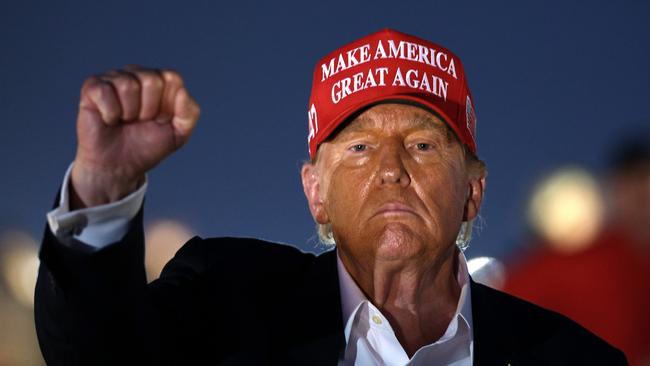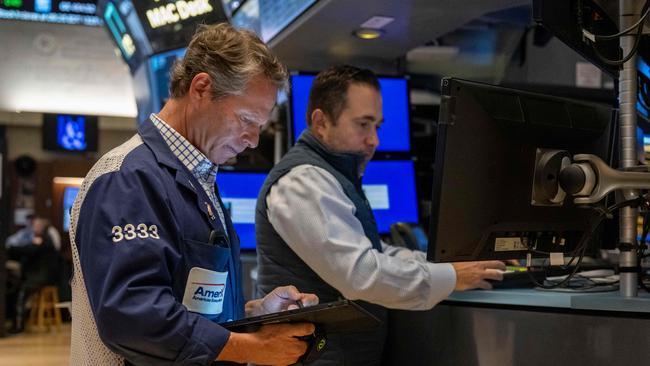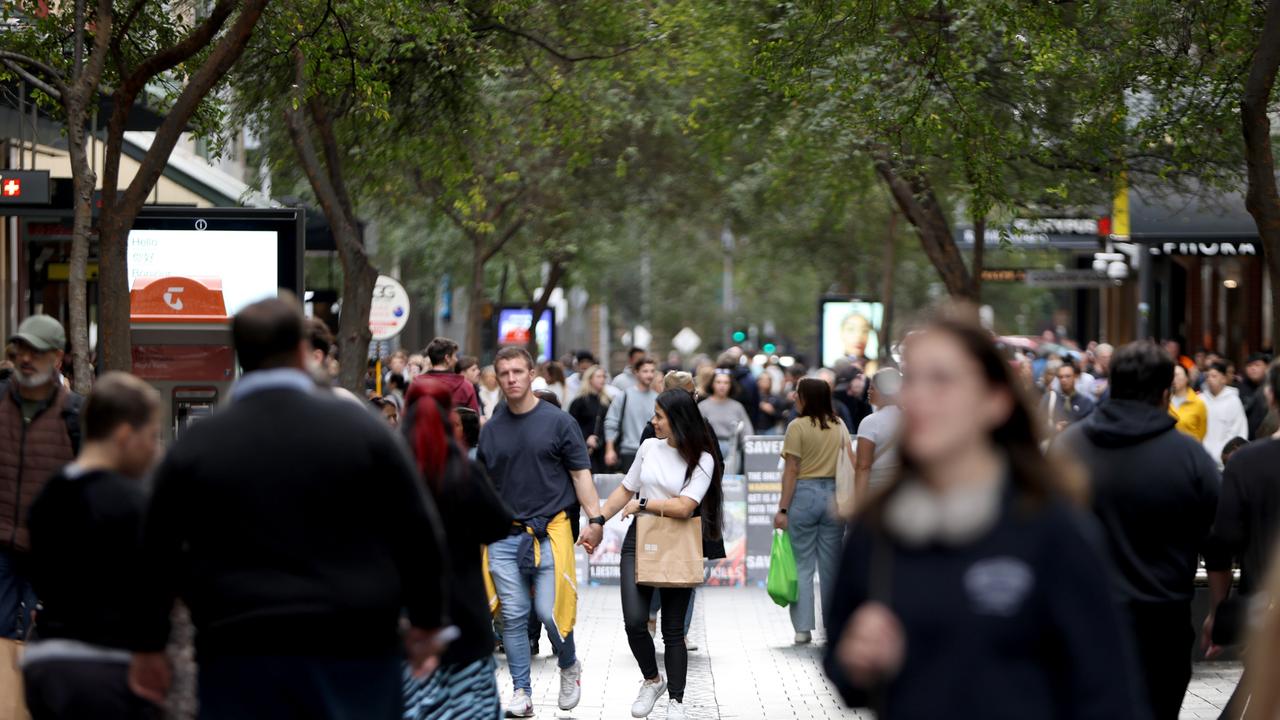War gaming US election is now a market obsession
Whether it’s Joe Biden or Donald Trump who wins the US presidential election this year, the world is about to change dramatically for investors.

Business
Don't miss out on the headlines from Business. Followed categories will be added to My News.
Much of the world is starting to pull out of its post-Covid shock and with inflation retreating in some parts, could be entering a new phase of economic normality.
This is the good news.
The bad news for investors is this could be short-lived.
There are two real risks looming on the horizon, and both are interrelated.
The first is Chinese property, and even though the slide hasn’t bottomed, the troubled sector has finally caught the attention of Beijing.
Authorities are starting to deploy massive bailout programs to convert hundreds of billions in idle residential developments into social housing.
When it comes to impact, the second risk is the big one: the US presidential election.
Pre-polling starts from late September, and this is where it’s going to get tricky.
The outcome of the Joe Biden versus Donald Trump vote could go a number of ways, given the control of Congress is also up for grabs. And the outcome of the vote has the potential to derail everything.

Some of the sharpest minds in investment markets are war gaming how the financial world will look after November 5. This will impact the allocation of hundreds of billions of dollars.
“We don’t have two scenarios, I think you have four scenarios,” UBS global head of economics and strategy research Arend Kapteyn says.
“You have either Biden or Trump, and then do they sweep Congress or not? And so if neither side sweeps and only has divided Congress, then the scope for doing anything on the fiscal side is heavily constrained.”
Kapteyn was speaking to The Australian on the sidelines of the UBS Asian Investment Conference in Hong Kong.
If Trump wins and controls Congress, he is tipped to be much more fiscally expansionary. But this is not 2016 – a time when Trump came to power and the US economy was sluggish and employment markets much weaker. Further inflationary expansion, while concerns continue about US government debt, would be enough to spook bond markets.
“You could get a very adverse bond market reaction that squashes the equity rally,” Kapteyn says.
Even with Biden, commitments of big spending on renewable energy and infrastructure programs would be enough to spook bonds, given the US economy has too much momentum right now.
The two risks are interrelated, because a Trump presidency is expected to again raise tensions with China. And that is a big topic throughout Asia.
The former president is already talking up steep tariffs on Chinese imports – a move that would no doubt invite equally steep retaliation on US goods moving into China.
A damaging trade war would sap confidence and could ultimately stall efforts for China to rebuild its property market with its economy.
China property matters, because “obviously, China is a very big weight on global trade, it is very commodity intensive. The spillover to other countries is important,” Kapteyn says.
Beijing this month took steps to resolve the troubling property slump, launching a $US42bn lending program to allow state-owned enterprises to buy housing for the rental market.
“The focus is now on cleaning up the excess inventory,” Kapteyn says. “The only problem is they haven’t nearly allocated enough funds to do so”.

Dennis Wilder, a former top CIA official specialising in East Asian and Pacific strategic issues who worked in the White House under the Bush and Obama administrations, says the term which defines US China relations today is “uncomfortable coexistence”.
“We are in a period where no matter who is president of the United States, it will be a strategic competition,” says Wilder, who is now a senior fellow with Washington’s Georgetown University. This competition is around technology, energy, politics and values.
“The Chinese don’t like to admit that this competition is occurring. Everything Beijing does, is about competition with the United States for primacy in the region for influence around the world,” says Wilder also speaking on the sidelines of the UBS conference.
Still, Wilder calls for perspective. Trump is all about the art of the deal.
“Where we could be surprised is that Trump will not be anti-China, he’ll actually be looking for the win with the Chinese,” he says.
That could come down to ways China can buy a lot more from the US to reduce the trade deficit. This would give Trump the mandate to say: “I can do what Biden couldn’t do.”
And the rest of the world is just going to have to live between the United States and China having this very real battle of values, ideology and systems.
‘It creates just an enormous amount of uncertainty about where we’re heading’
Still, Trump’s tariff threat is the big unknown. The former president recently said he’d slap 100 per cent tariffs on Chinese cars – no matter where they were made.
The last damaging tariff trade war took place in a low inflation environment, so it was largely absorbed in the supply chain and through US company profits.
“The tariffs you’re talking about now are so large so it will show up in inflation, and then you have stagflation or shock,” Wilder says.
“I think the baseline of strategy from the election is the US Federal Reserve will be able to ease cash rates from the end of the year.
“But with the tariffs my guess is that the (US) Fed will look at that and say: ‘I don’t want to do anything. I want to kind of see whether this inflationary or deflationary’.
“It creates just an enormous amount of uncertainty about where we’re heading.”
All this comes with the ever louder backdrop of global geopolitics. The Middle East around Israel is under pressure, and Russia and Ukraine are in a grinding stalemate which could all go a number of ways following the US elections. Then there is not just the US and China over economic tension, with Europe and China now trading bards over electric vehicles.
This too could spark a new front on the trade war, and this is another threat for growth.
“I think the way we’re going to approach it is where we have an existing baseline, obviously, which largely assumes policy status quo, which is not going to be realistic,” UBS’s Kapteyn says.
“We’re going to October, and we’re going to come up with these four scenarios, wait for the outcome, and then pick one as the new baseline.
“We genuinely do not know what next year will look like because of those elections.”
The reporter travelled to Hong Kong as a guest of UBS
johnstone@theaustralian.com.au
Originally published as War gaming US election is now a market obsession



